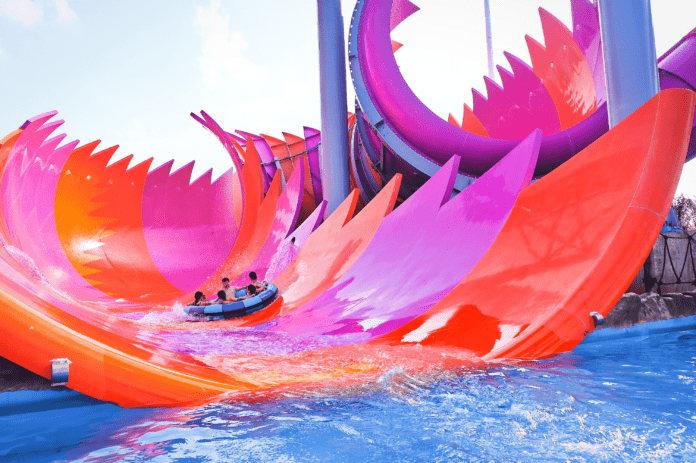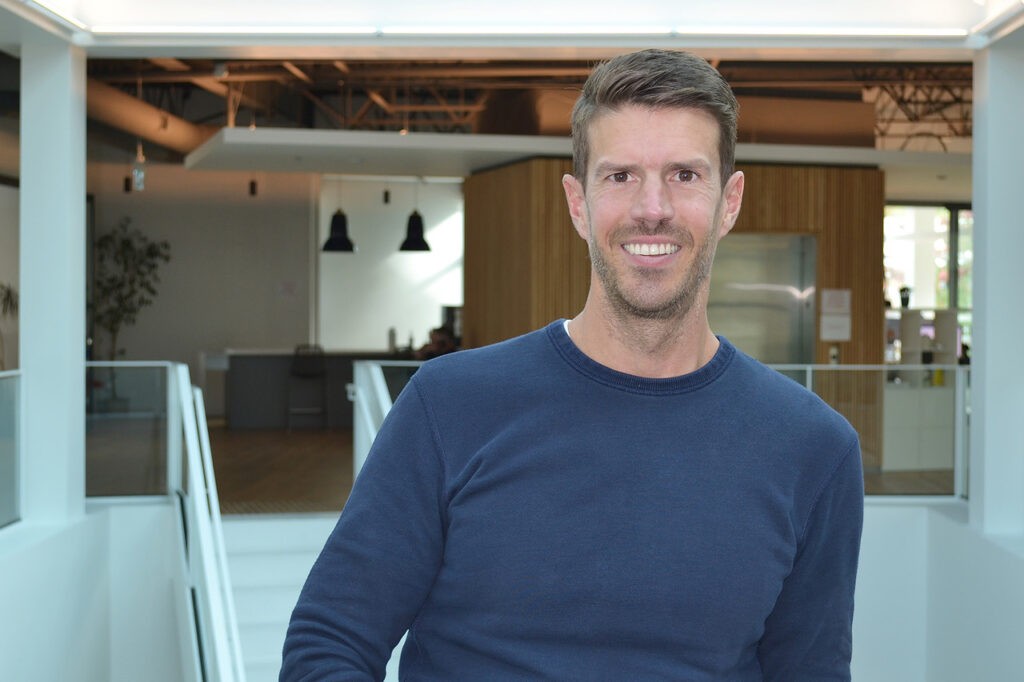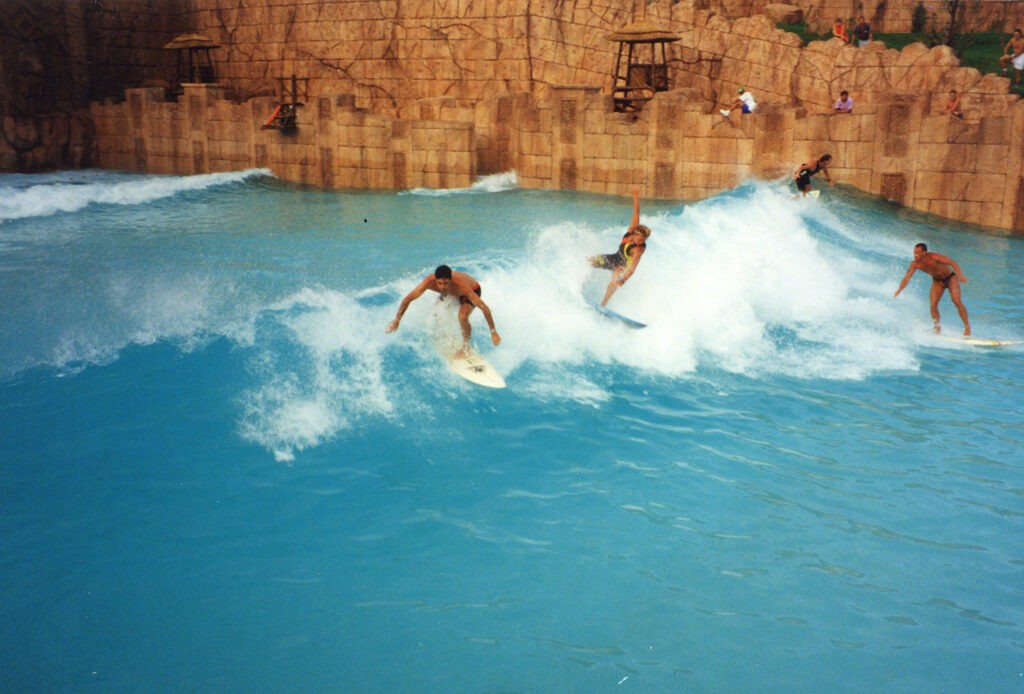As WhiteWater, designer and manufacturer of water park products, celebrates its 40th anniversary this year, a transfer of leadership took place. Paul Chutter, son of CEO Geoff Chutter, assumed the role of President. With the generational change comes a focus on the impact the attractions industry has on the environment.
The company is announcing a corporate-wide commitment to implement more sustainable environmental practices for all its operations and products as well as those of its suppliers, with waste and carbon footprint reduction goals in the next 20 years. It aims to be a driver of sustainable change in the industry, both up the supply chain as well as downstream to address the climate crisis.
Bringing Sustainability Activities from the Background to the Foreground
Many of the company’s products and designs already improve water and energy savings, from risers built according to proprietary computer simulations to guard against splash, to run-out lanes with wave catchers, and the IAAPA Brass Ring Award-winning Smart Blast technology that uses variable frequency drives (VFDs) to dynamically adjust pump speeds during ride operation, thereby drastically reducing water and energy usage.
Structured Approach to Initiating Sustainable Change
To further real end-to-end change in WhiteWater’s entire operation, all areas of the company are involved, from design to procurement, from manufacturing to marketing. Every employee is encouraged to contribute their ideas, which are collected and considered by the company’s sustainability committee. Approaching the issue holistically, the company is implementing a Sustainability Scorecard, with focus on four areas: Corporate, Manufacturing and Supply Chain, Parks and Products, and Social Responsibility.
Each of these areas is headed by a staff sub-committee consisting of employees who have expertise in the topic. They collaborate to establish baseline metrics and achieve interim milestones that keep the momentum going to realize long-term objectives.
Setting Ambitious Sustainability Goals
The Sustainability Scorecard will hold WhiteWater accountable for making progress toward sustainable practices, with each area setting goals for the coming years.
The Corporate aspect of the Sustainability Scorecard covers WhiteWater’s day-to-day operations, with the goal of achieving ISO 14001 standards for waste reduction and environmental management by 2025. This certification will serve as an internationally recognized external validation.
For the Manufacturing and Supply Chain part of the Scorecard, WhiteWater is committed to halving its waste by 2030 and becoming “net zero” by 2040. In addition to examining its own product development and manufacturing processes, the company will work closely with its suppliers and partners with regard to raw materials, energy consumption, and end-of-life solutions.
Further down the value chain, the Parks and Products area of the Sustainability Scorecard aims to help WhiteWater’s customers succeed in their own efforts toward climate neutrality. Examples of manageable, actionable steps include mitigating water loss, extending material life, and retrofitting with energy-efficient equipment such as VFDs.
Donating 1% of Corporate Profits
To make a meaningful difference in combating climate change, WhiteWater is looking beyond its own industry. Water is at the core of what the company does, so it feels strongly about protecting this resource. Because the oceans are as important as the forests in removing carbon from the atmosphere, WhiteWater will be donating 1% of its corporate profits to water-focused NGOs. This action falls under Social Responsibility, the fourth part of the Sustainability Scorecard.
In addition to making monetary donations, WhiteWater is also supporting employees to engage in social responsibility and live a more sustainable lifestyle. Starting with preserving the local environment, company-sponsored team activities include river trail maintenance, beach clean-ups and recycling drives, with more in the planning.
Change Is Possible
“The time has come for all business leaders to confront sustainability issues head on,” said Paul Chutter. “As the industry’s leading manufacturer, WhiteWater needs to advocate environmentally friendly practices, starting with ourselves, and up and down the value chain. With the climate in crisis, we need to make sustainable changes a priority. We are taking the initiative not just because our clients, their guests, our employees, and new regulations will demand it, but because it is the right thing to do.”
WhiteWater aims to encourage the industry to take action on sustainability and invites all players — manufacturers, designers, suppliers, operators — to join its efforts.
“This needs to be more than a conversation,” continues Chutter. “We need to put our minds together to create a more sustainable attractions industry. Creating fun today cannot borrow from tomorrow.”
Read WhiteWater’s sustainability statement and see more details on www.whitewaterwest.com/sustainability.








